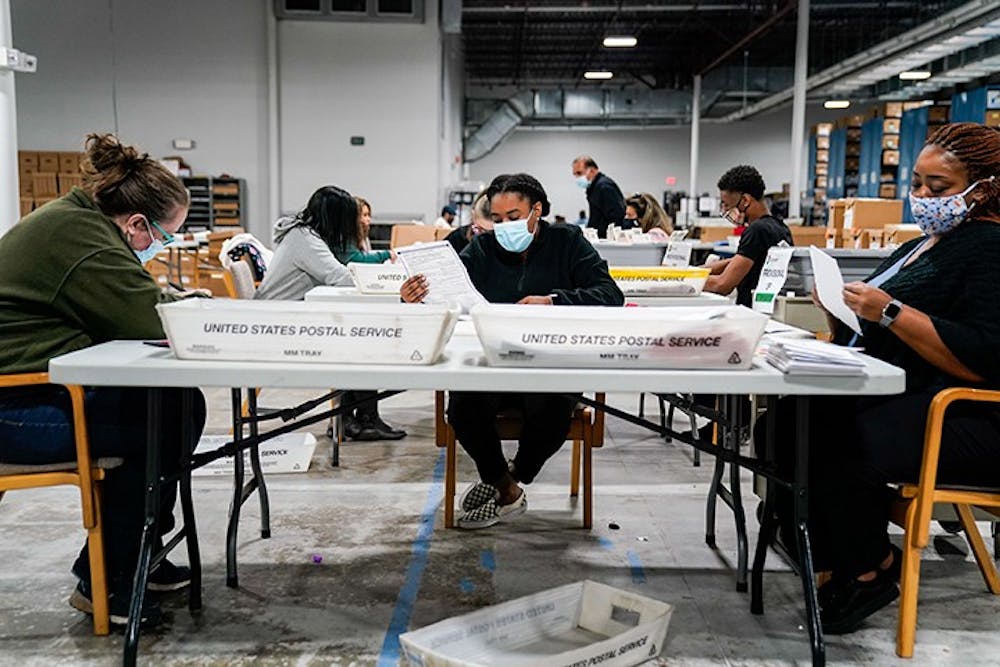Just as people have the right to vote, they also have the right to abstain, either because of barriers to voting or political disinterest.
In the 2016 presidential election, 44.28% of Americans did not vote, according to the Pew Research Center. For college students specifically, Inside Higher Ed says 51.7% did not vote.
If potential voters aren’t paying attention, it can be easy for the registration and mail-in deadlines to get lost among midterms and assignments. Not getting a voting plan together in time for a busy student should be understandable, especially for those who are disinterested in politics.
One reason some citizens choose not to vote is just that they are not interested in politics. These are people who are not going to take the time to research political candidates or focus on getting their voting plan together before November. Just like other special interests, this should not be mandatory for all people to be invested in.
For disinterested and invested potential voters alike, there are several barriers to voting that make it hard to justify the time needed to participate. According to FiveThirtyEight, more than 15% of voters report having to wait in line more than an hour to vote, and more than 5% couldn’t get off work to vote or did not receive an absentee ballot in time. For some, these barriers can make it very costly in lost working hours and infeasible if not planned far enough ahead.
There is a popular narrative that nonvoters are generally rich and upper middle-class white people who decide not to vote because they are immune to the consequences the election could have on nonwhite and lower-class people. In this case, left-leaning nonvoters would be expected to step up and do their social duty for the people that the election is more likely to affect.
According to the Pew Research Center, though, white voters made up 74% of voters in 2016 and only 52% of the nonvoting population. Comparing the percentages of voters to nonvoters in all other races, the percentage of nonvoters were 5% or more than the voters. The decision to vote is not just an issue of abusing white privilege because it's not just white people that are making the decision to not vote.
Everyone has the responsibility to vote for the candidate they support more. Not voting is simply a statement of not supporting either candidate.
As it stands, according to the Politico article “Half of Americans Don’t Vote. What Are They Thinking?” if nonvoters had to vote in November, they would split 33% for Democrats, 30% for Republicans and 18% for third-party candidates. This fairly even split means that on a big-picture scale, if all nonvoters chose to vote, they would not be likely to change the result all that much.
And logically, if disinterested voters don’t go to the polls, it makes the votes cast from people who cared enough to prioritize the time needed to vote, either in person or by mail, worth more.
One exception to not shaming nonvoters is if a person claims to support a candidate but decided to not vote without having other reasons they were unable to. American citizens that complain about the election without making a sincere effort to participate deserve at least some light ribbing. Hypocrisy is very different from non-participation.
Whether it’s an honest mistake or a conscious decision, it doesn’t add value and is not kind to make someone feel bad if they didn’t make it out to the polls this year. In order to create an understanding political atmosphere, we need to be understanding of one another in all aspects, even the decision not to participate.

